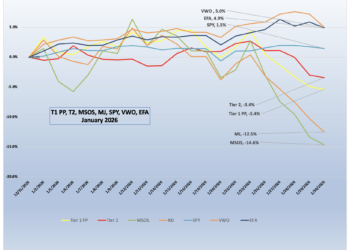Concerned about legalizing personal use of psychedelics before a therapeutic program is in place, California Gov. Gavin Newsom vetoed a bill that would have decriminalized personal possession of certain psychedelic narcotics in 2025. He also vetoed and signed various cannabis regulation bills in the last week.
SB 58, sponsored by Sen. Scott Weiner, would have allowed people age 21 and older to possess certain amounts of mescaline, dimethyltryptamine (DMT), psilocybin and psilocyn for personal use beginning Jan. 1, 2025. It also would have required a Health and Human Services Agency working group to study a potential regulated, therapeutic program and provide a report by then.
In his Oct. 7 veto letter, he acknowledged that peer-reviewed science and personal anecdotes have proven that psychedelics can relieve certain mental health conditions such as depression, PTSD, traumatic brain injury and other addictive personality traits. He said it is an “exciting frontier” California will lead.
“California should immediately begin work to set up regulated treatment guidelines — replete with dosing information, therapeutic guidelines, rules to prevent against exploitation during guided treatments, and medical clearance of no underlying psychoses,” he stated. “Unfortunately, this bill would decriminalize possession prior to these guidelines going into place, and I cannot sign it.”
He urged the legislature to come back next year with a bill that includes therapeutic guidelines.
“I am, additionally, committed to working with the legislature and sponsors of this bill to craft legislation that would authorize permissible uses and consider a framework for potential broader decriminalization in the future, once the impacts, dosing, best practice, and safety guardrails are thoroughly contemplated and put in place,” he said in the letter.
The bill is now back with the Senate for consideration of the governor’s veto.
Weiner’s spokesman did not respond to requests for comment.
Meanwhile, psychedelic treatment advocates have begun gathering signatures for a voter petition for the November 2024 ballot. The TREAT California Act would establish a state agency that would be financed with $5 billion in bonds to fund clinical trials.
Newsom signs, vetoes cannabis legislation
In regards to the legalized cannabis market in the Golden State, Newsom signed a bill on Oct. 8 that gives the state Department of Cannabis Control (DCC) more authority in determining a unique identifier program, known as track and trace.
While the bill introduced by Sen. Ben Allen did not specifically mention it, SB 622 reportedly would allow regulators to implement a single-tag system, that would be more environmentally friendly and could save the state millions of dollars.
Newsom also vetoed two other cannabis-related bills on Oct. 8.
AB 374, introduced by Assemblymember Matt Haney, would have allowed cannabis cafes where customers could smoke their cannabis while enjoying a snack or nonalcoholic beverage and maybe some live music. But the bill flies in the face of existing state law that bans smoking at workplaces.
“I appreciate the author’s intent to provide cannabis retailers with increased business opportunities and an avenue to attract new customers. However, I am concerned this bill could undermine California’s long-standing smoke-free workplace protections,” Newsom said in his veto letter.
He also did not sign a bill intended to restrict marketing of cannabis products to children, AB 1207. He said the way the bill, introduced by Assemblymember Jacqui Irwin, defined “attractive to children” was “overly broad.”
Newsom said in his veto letter, “By prohibiting entire categories of images, this bill would sweep in commonplace designs, and I am not convinced that these additional limits will meaningfully protect children beyond what is required under existing law.”
He instead directed the DCC to “strengthen and expand” current youth marketing protections, including enhanced enforcement.












